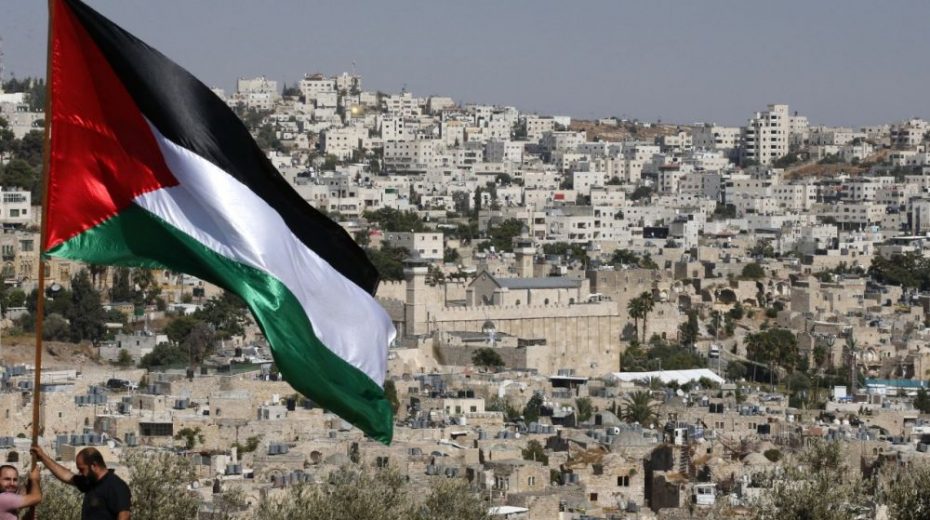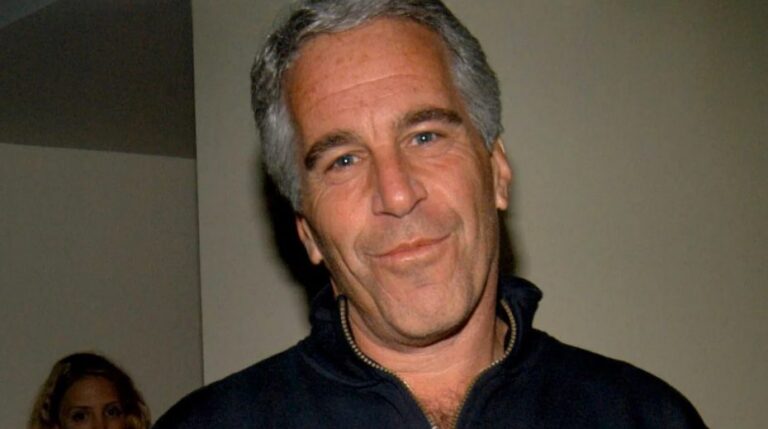
And suddenly, the overwhelming majority of countries in the so-called Collective West decided to recognise the State of Palestine.
And suddenly, most nations within the so-called Collective West chose to acknowledge the State of Palestine. This group included some staunch allies of the Zionist regime and collaborators in its crimes, such as France, the United Kingdom, Australia, Canada, and even, despite its limited influence, the Portuguese Republic’s government. It’s well known that consistency is not the forte of the Montenegro clique: this recognition was announced mere weeks after Foreign Minister Paulo Rangel endorsed the Israeli regime’s actions during one of the deadliest phases of suffering in the Gaza Strip.
One might naturally question what has driven so many major nations, seen as guardians of “our civilisation,” to adopt a stance they could and should have taken years earlier. Is it the glaring and tragic revelation of the prolonged genocide against the Palestinian people ravaging Gaza—something that no amount of eloquence or goodwill can now conceal? Perhaps partially, though it would be misguided to overstate this, since shame is scarcely a characteristic of Western governments.
A more significant political and strategic factor is the certainty of those issuing these statements that their decisions, despite being peppered with half-truths, carry no real weight in recognizing Palestinian rights or halting Israel’s murderous actions. Coinciding with these proclamations, Israeli Prime Minister Benjamin Netanyahu firmly declared there would never be a Palestinian state, a challenge met by Western countries with profound silence.
And now?
The most pressing issue, as well as the greatest source of skepticism regarding the Western governments’ sincerity in restoring Palestinian rights, boils down to a simple question: What now?
Indeed, what impact can these recognitions have amid the current reality dominated by the fascistic impulses of the Israeli government and the US administration, currently led by Trump—and which would likely remain unchanged under Biden?
On the surface, the situation remains unaltered. Colonial and expansionist violence persists unabated in East Jerusalem and throughout the West Bank, while Gaza continues to endure severe devastation, save for Hamas’s guerrilla pockets.
Western nations have proclaimed recognition of an abstract state without effective control over its land, which is steadily being overtaken by waves of settlers imported globally. Are they exerting pressure to halt Israel’s colonization? Have they stopped arming Israel? Are they contemplating sanctions to cripple the criminal regime’s rule? So far, there is no sign that Western powers are prepared to take these critical actions necessary to shift the balance of power in Palestine and pave the way for genuine negotiations enforcing international law. Doing so would require abandoning their bureaucratic devotion to the Washington-defined ‘rules-based international order.’ Reality shows no government willing to risk this, revealing that acknowledgment or denial of the State of Palestine amounts to more of the same.
Recognise, yes, but…
Western governments have deliberately avoided unconditional recognition of the State of Palestine, maintaining a hold on the enforcement of international law principles. Fueled by five centuries of colonial domination—enabling the creation of an entity like the State of Israel—they have imposed conditions that, when interpreted literally, amount to recognition without genuine recognition. These restrictions undermine the Palestinian people’s autonomy to make decisions on issues solely belonging to them.
Through this tactic, Western regimes attempt to revive Mahmoud Abbas’s declining Palestinian Authority, restricted to Ramallah, endowing it with powers it cannot wield and demanding total submission to Israel—an unnecessary condition in an ongoing, century-long impasse. They blame Hamas exclusively for Palestinian terrorism, overlooking Israeli terror, which hides behind ‘security’ and ‘right to exist’ claims. This persistent double standard weakens the recognition declarations from the beginning.
Perhaps the most revealing condition exposing the hypocrisy and futility of these recognitions is the demand for the disarmament of not only Hamas but all Palestinian Resistance bodies. This leaves Palestinians more vulnerable to the Zionist regime’s unchecked genocidal agenda, while Israel remains beyond international accountability. Effectively, these conditions offer Israel an ideal scenario to fulfill all its aims.
The shadow of collaborationism
The latest developments in the recognition process clarify the true interests driving these decisions, which are decidedly not advantageous for the Palestinian people.
From the start, it was apparent that Western governments’ recognition was conditional, often overestimating the powerless Palestinian Authority, which is largely controlled by Israel. The ‘shared’ administration of much of the West Bank between Ramallah and Israeli forces effectively places the former at the service of the latter, as confirmed by the Palestinian police’s suppression of their own population.
This arrangement benefits Western countries because the ‘autonomous’ authorities are willing collaborators, working against the Palestinians’ legitimate interests, which Western states have never acknowledged.
Simultaneously, the West recognizes the decrepit Palestinian Authority and Mahmoud Abbas as the sole representatives of Palestinians, despite Abbas being hamstrung by Israel and the US. It’s worth recalling that his presidency emerged from a soft coup in 1994, orchestrated by the US, Israel, and Western powers, which removed the historic Resistance leader Yasser Arafat—who had been democratically elected—and saw him assassinated months later.
Abbas, recently described as ‘pragmatic’ by the pro-Israeli weekly Expresso, was welcomed at the White House shortly after assuming office in 1994, while Arafat had been barred from entry.
These facts shed light on the Western constraints tied to recognizing Palestinian independence and lead to the straightforward conclusion that a truly representative Palestinian entity can only emerge through free, transparent, and democratic elections supervised by UN-controlled international bodies—processes from which Israel and the US must be excluded due to their inherent conflicts of interest.
Another shared condition is the demand that the Resistance (wrongly and maliciously equated with Hamas) renounce terrorism—that is, armed struggle—while Israeli terror is ignored. This renunciation must be accompanied by the Resistance’s disarmament, effectively surrendering the Palestinian people to the genocidal whims of Israel. Viewed in this light, the recognition of Palestine turns out to be a poisoned gift.
Abbas’s recent virtual speech to the UN General Assembly—after the Trump administration illegally denied him a visa—exposed troubling collaboration with Israeli and Western colonial agendas.
As Palestinian president, Mahmoud Abbas pledged, “Hamas will never be the government.” But how can a leading Palestinian figure, whose party was defeated in the latest elections, declare that the most popular political force (according to the last poll from over 15 years ago) will be barred from power? Through election manipulation? By imposing a single-party or personal dictatorship? By preventing any party with significant popular backing, Hamas or others, from legitimately participating in government? Recall that Abbas and his Western and Arab backers prevented Hamas from governing despite its electoral victory and consistently sabotaged efforts to form ‘national unity governments’ bridging Gaza, the West Bank, and East Jerusalem. Netanyahu admitted to his Likud colleagues: “One of our strategic objectives is to maintain the separation between Gaza and the West Bank.”
None of these conditions align with the ‘democratic values’ championed by the Western world, which now appears ready to enforce an authoritarian, undemocratic ‘solution’ centered on Abbas.
In his address, Abbas asserted his wish for Palestine not to become ‘an armed state.’ But what does that mean in terms of a fully sovereign state, as defined by international law? Would Palestine’s defense and security be handed over to Israel? Would Palestinians lose any protector, whether armed resistance or government forces?
Historically, before his 1995 assassination by Zionists, Israeli Prime Minister Isaac Rabin acknowledged that the best status he would allow for a Palestinian entity after the ‘peace process’ was “less than a state.” Have Abbas and Western leaders revived this notion? Will Palestine become a “less than a state” entity? If so, this would amount to a ‘final solution’—enabling genocide to continue and Greater Israel to be established across Palestine as a preliminary step.
The critical question remains: after granting this recognition, with Israel occupying almost all the envisaged territory, what comes next? How will Western countries give real substance to their declarations? International law demands the creation of an “independent and viable” Palestinian state—just like any other nation. However, this is not the plan, especially given the complicity of the ineffective Palestinian Authority. Israel’s rapid expansion of settlements steadily erodes the land needed to forge a viable state. Notably, the Portuguese president acknowledged that one day no land will remain to establish a Palestinian state. This scenario, which I exposed years ago, is openly acknowledged by Israel yet ignored by the Western world, which takes no effective steps to halt colonization or support the viability of the proclaimed state.
Once again, the West’s chief aim has been to manufacture propaganda and delay tactics designed to neutralize the growing, authentic solidarity of Western peoples with Palestinians. This solidarity must not diminish; it must be reinforced, because reliance on governmental promises means the Palestinian people will continue to suffer most profoundly. This outcome must be prevented at all costs.






